Backstage and Shops
Volunteer opportunities in UT productions and shops empower students with knowledge, hands-on experience and valuable life skills development.
Select an area of interest and discover how you too can be a part of the show.
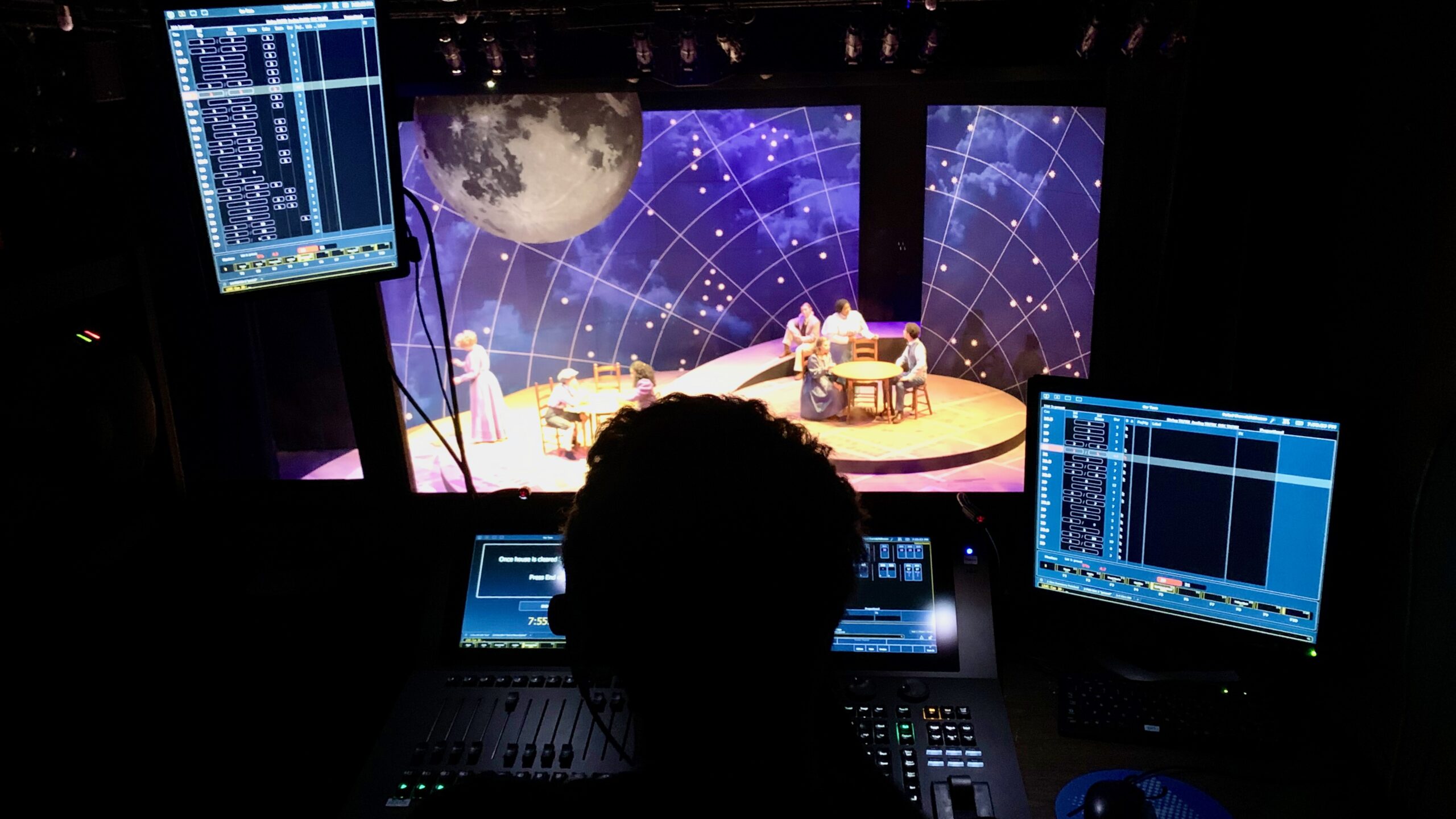
Backstage Crew
Come operate a show!
Production crews offer many positions across many disciplines.
Production crews are exclusively student volunteers, typically consisting of 14-20 members. Crews cover the lighting, sound, costume, and scenic needs for the show and all positions are considered “no experience necessary.“
Commitment
Time commitments vary from position to position and from show to show.
Stage Manager
Stage managers provide practical and organizational support to the director, actors, designers, stage crew and technicians throughout the production process. The role of the stage manager is especially important to the director in rehearsals. The director and the stage manager work side-by-side during rehearsals, recording the director’s decisions about blocking and notes for the actors. They are also tasked with keeping track of logistical and scheduling details and communicating them to the rest of the team. This enables the director to concentrate their full attention on directing.
Stage managers have several key responsibilities and tasks to perform in each phase of a production, including but not limited to:
- Running rehearsals
- Communicating the director’s wishes to designers and crafts people
- Coordinating the work of the stage crew
- Calling cues during performance
- Overseeing the entire show each time it is performed
The stage manager creates and distributes reports for all rehearsals and performances ensuring that each member of the production team is kept up-to-date with operations.
Once the show opens, the stage manager’s job is to ensure that every aspect of the production runs just as the artistic team intended.
It is expected of each stage manager to attend auditions, rehearsals, performances, and strike. Stage managers are the key player and go-to person for the entire production.
If you like organization, details, supporting and leading others, this may be the role for you!
Assistant Stage Manager (ASM) / Production Assistant (PA)
The assistant stage manager (ASM) is closely involved in the production, supporting the stage manager in their duties. During rehearsals, the ASM will be delegated tasks by the stage manager. These task can be, but not limited to:
- Following lines, taking/distributing line notes
- Tracking props, scenery and/or costumes
- Stage prep including, sweeping, mopping, and setting props
- Fill in for the SM when required
During performances the ASM is typically stationed just offstage to facilitate communication between the stage manager and actors, as well as ensuring safety for the cast and crew. They will also help with complex set changes, quick changes offstage, or preparing the stage for performance.
ASMs are expected to attend all rehearsals, techs, performances, as well as strike.
Like the ASM, production assistants (PA’s) help in supporting the SM team in their duties. PA’s are considered, ASM-lite. PA’s are expected to attend the last week of rehearsals, all techs, performances and strike.
If you like organization, details, supporting and leading others, but not sure you’re ready to fully lead, this may be the role for you!
Board Operators
Sound, lighting, and projections each require board operators. During tech the op will learn from the designer how to operate the equipment. Once the show opens the light board ops will perform a systems check as well as operate the board during each performance. Two board ops are assigned to each system and will trade off rehearsals and performances throughout the run. It is expected that both board ops equally attend all tech rehearsals, performances, and strike.
If you like technology, electronics, computers, and understanding how the show works from a technical stand point, while being able to see the performance, this may be the job for you.
Wardrobe
Wardrobe members include both wardrobe heads and dressers. These positions assist actors in top-of-show dressing, costume changes, and laundry. It is expected that dressers attend crew orientation, all dress rehearsals, performances, and strike. Both positions will work with the costume shop manager to schedule laundry outside of regular evening rehearsals and performances.
If you enjoy fashion, clothing, crafting, sewing, and supporting peers backstage, this may be the role for you!
Deck Crew
Deck crew members operate stage equipment directly backstage or in the wings. These members power the scene changes, prop handoffs, and onstage “magic” for each production. This may include, but not limited to, moving scenic units, setting of props and scenery on stage, operating flying scenery or other specialized equipment. It is expected that each run crew member attend all tech rehearsals, performances, and strike.
If you like being backstage helping and supporting actors through moving scenery or operating equipment, this may be the job for you!
Spot Light Operators
Spot light operators, Spot ops, physically move a light fixture to light actors on stage. One or two students are assigned to each spotlight and will operate the fixture during tech and performance. Spot ops are on headset during the show and often working in the catwalks at heights of 20-40 feet.
If you like seeing the show, technology, and heights, this may be the job for you!
Experience
No experience necessary. Crews are supported by professional theatre staff and trained during the rehearsal and performance process.
Benefits
Participating on the crew is like no other experience. It is the crews’ job to support the production, ensuring the world of the play operates flawlessly night after night. Time management, leadership, and collaboration are but a few of the many skills students learn while participating backstage.
For more info contact
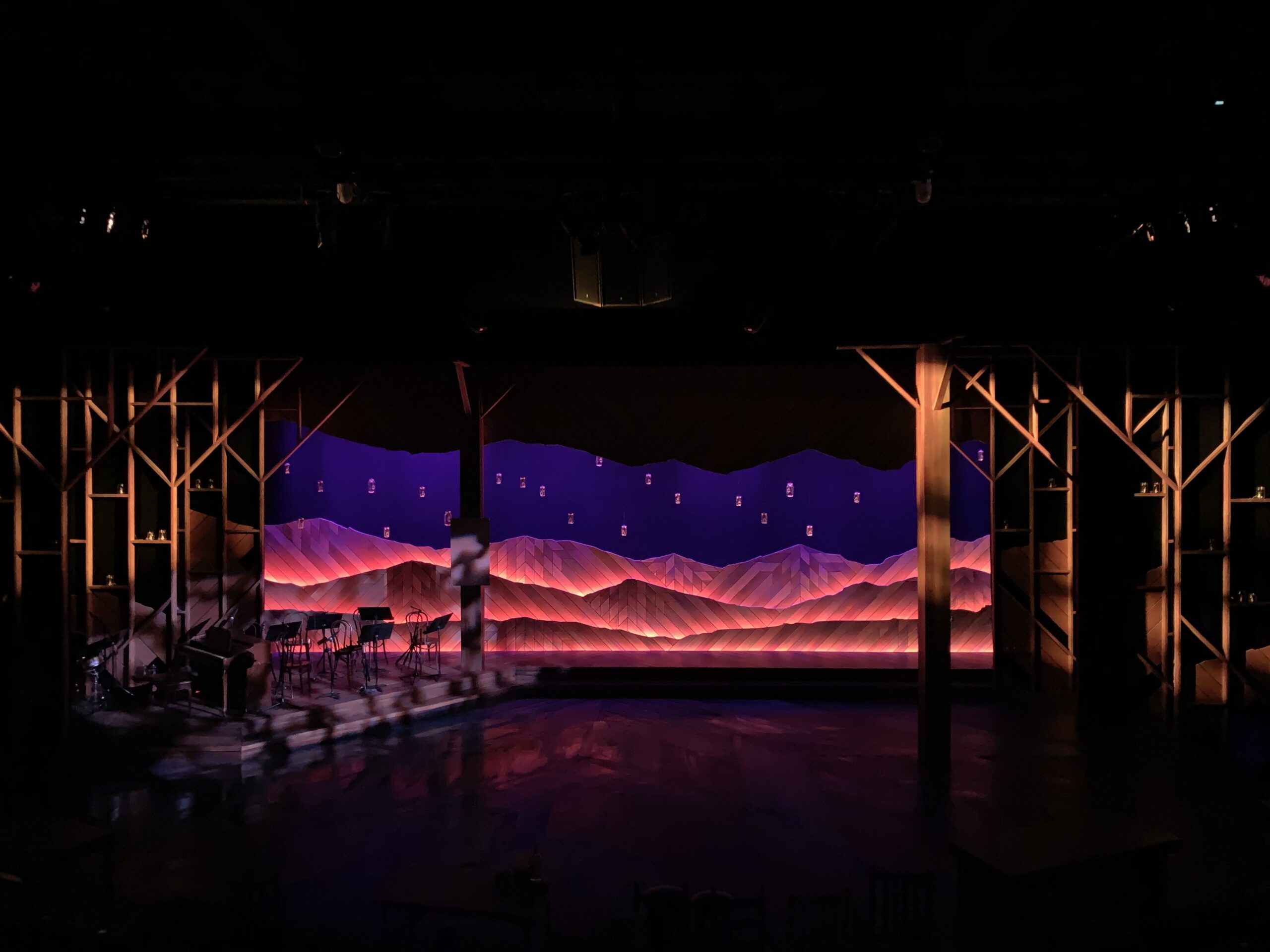
Scene Shop
Come help build a set
Volunteer opportunities increase knowledge, provide hands-on experience and develop valuable life skills.
The scene shop is responsible for creating all of the scenic elements for the producing series shows which includes the scenic construction, paint and props as well as other items as needed. Students are led by professional staff ensuring a welcoming and safe space to learn new skills and try out new techniques. Located in Frank Thompson Hall, the scene shop utilizes current and state-of-the-art equipment to build the many worlds across all three performances spaces on campus.
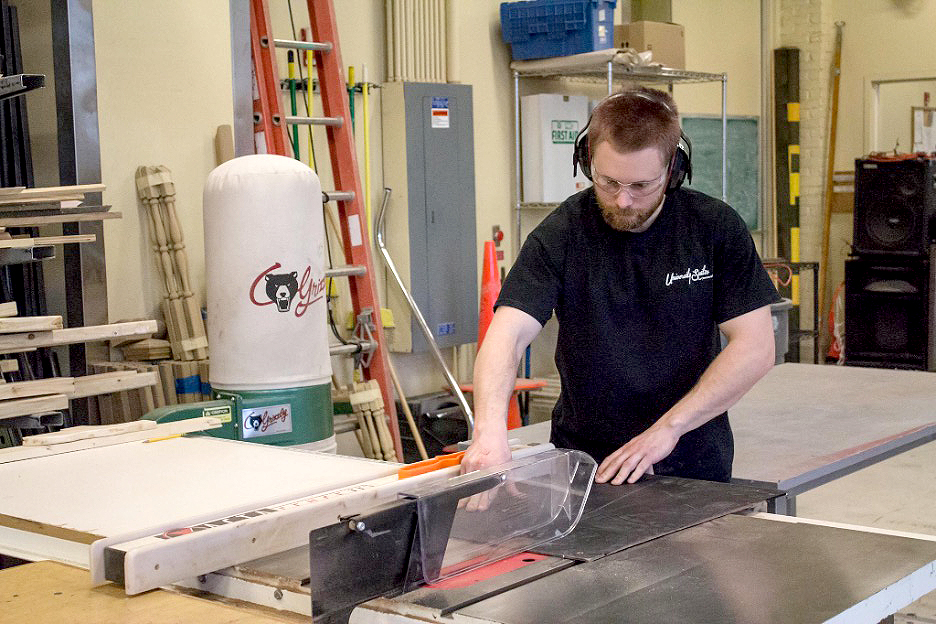
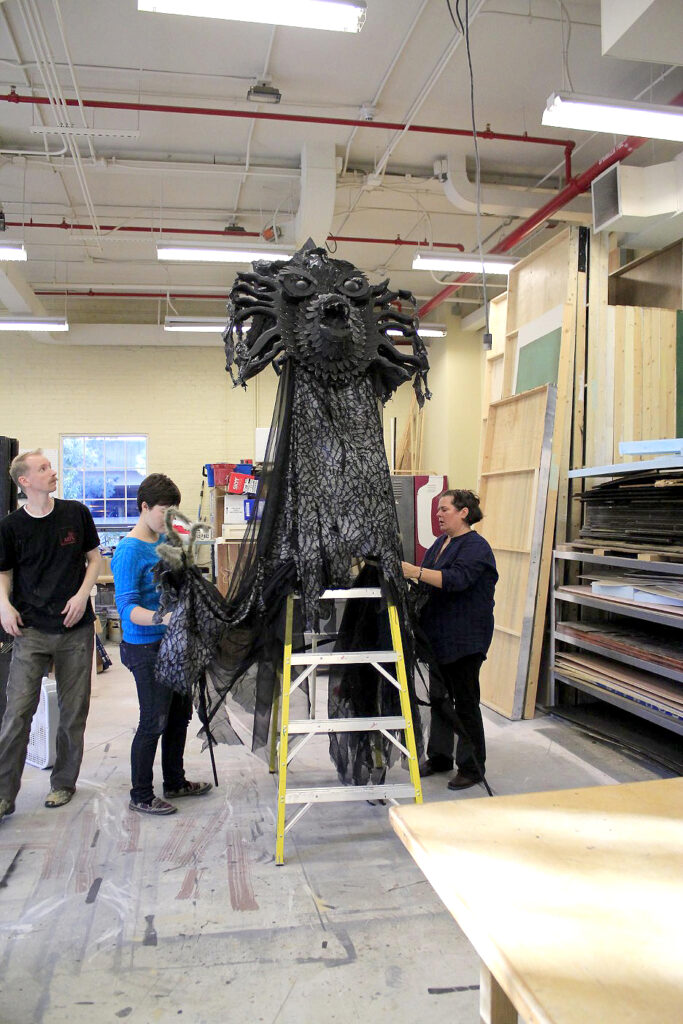
Commitment
Students sign up for available time blocks that work for their schedule. The shop is typically open from 10:00 a.m. -12:00 p.m. and 1:30-5:30 p.m. Monday through Friday with some exceptions due to classes being taught in the shop or meetings. Students sign up for a 2 hour (or more) time block and come back every week at their scheduled day and time. Everyday is going to be different as the show progresses. There is some weekend work for strike and load-in but the majority of the work is completed during the work week.
Experience
No experience necessary. Let us know what you are interested in learning and we will try to assign you projects in that area of interest. Many of the students in the shop are working on their backstage class assignment hours for Intro to Theatre (THE 103) or Stagecraft (THE 223).
Benefits
In addition to helping build the worlds in which participants in UT productions inhabit on stage, students involved in the scene shop learn new skills that will benefit them in many different ways — construction techniques, hand and power tools, CNC operations, paint techniques, prop construction and alterations.
For more info contact
How-to-Theatre
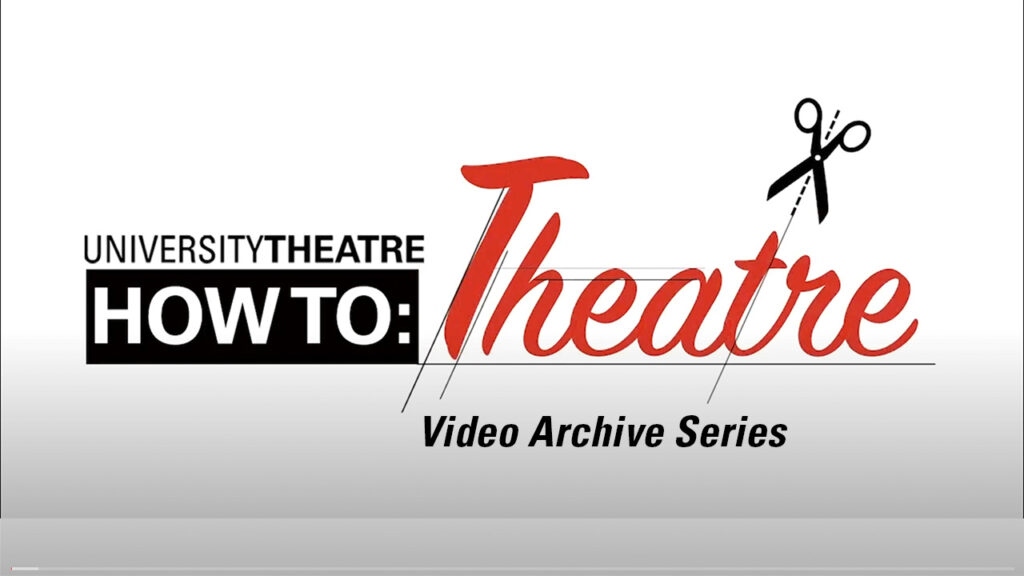
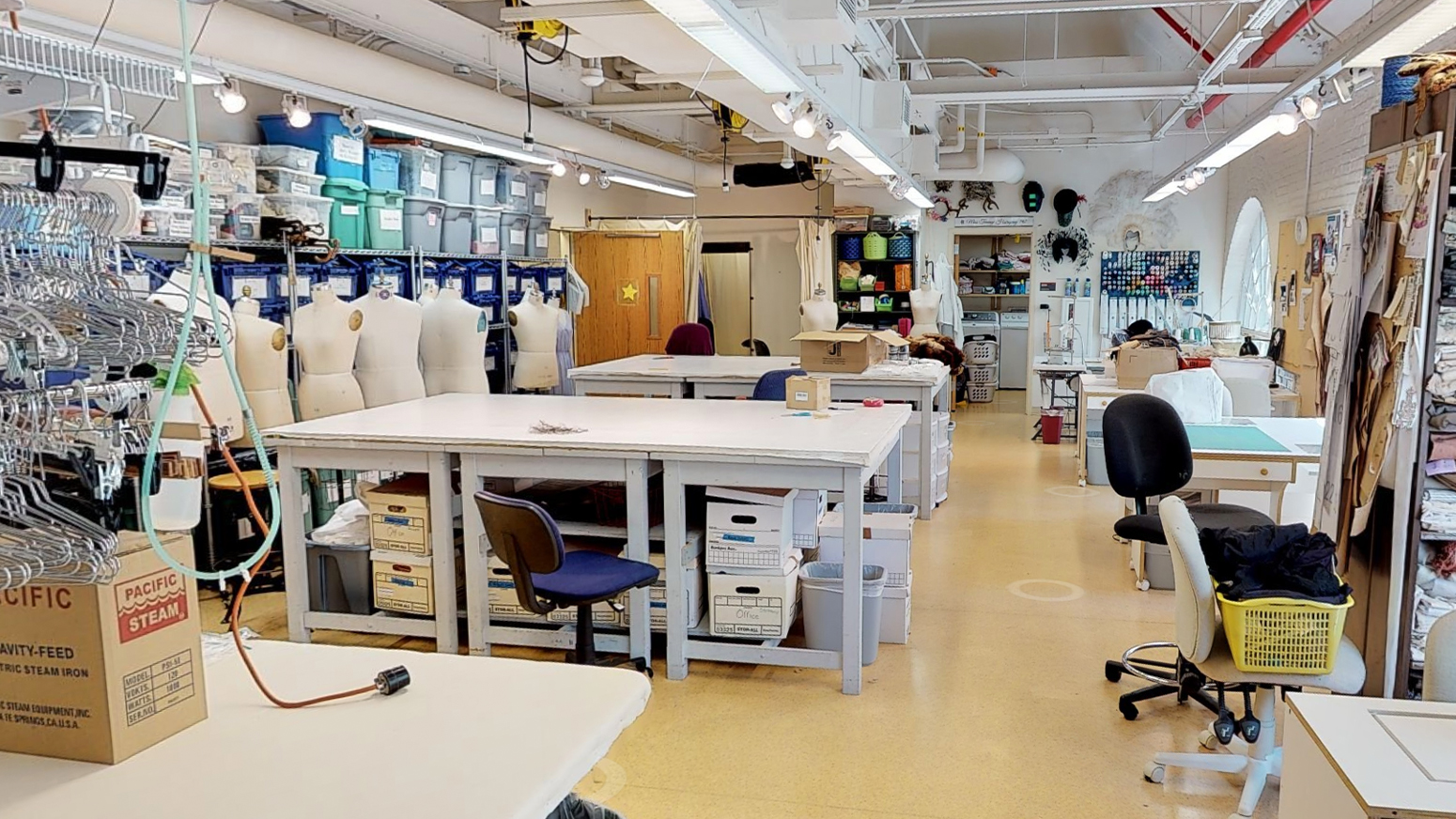
Costume Shop
Historic pieces to fantastical fairy horns help tell the story!
Building historic pieces to fantastical fairy horns to help tell the story!
The costume shop creates and manages all the costumes you see in a University Theatre show! From historic pieces to fantastical fairy horns, students get a hands-on opportunity to create scores of costume pieces that help tell the story. Student volunteers and students doing backstage assignment hours for classes assist the shop in creating costumes — patterning, cutting and sewing garments, alterations, and costume crafts such as EVA foam work and painting are all part of our productions. Students learn a variety of techniques including hand finishing, machine sewing, and costume crafts.
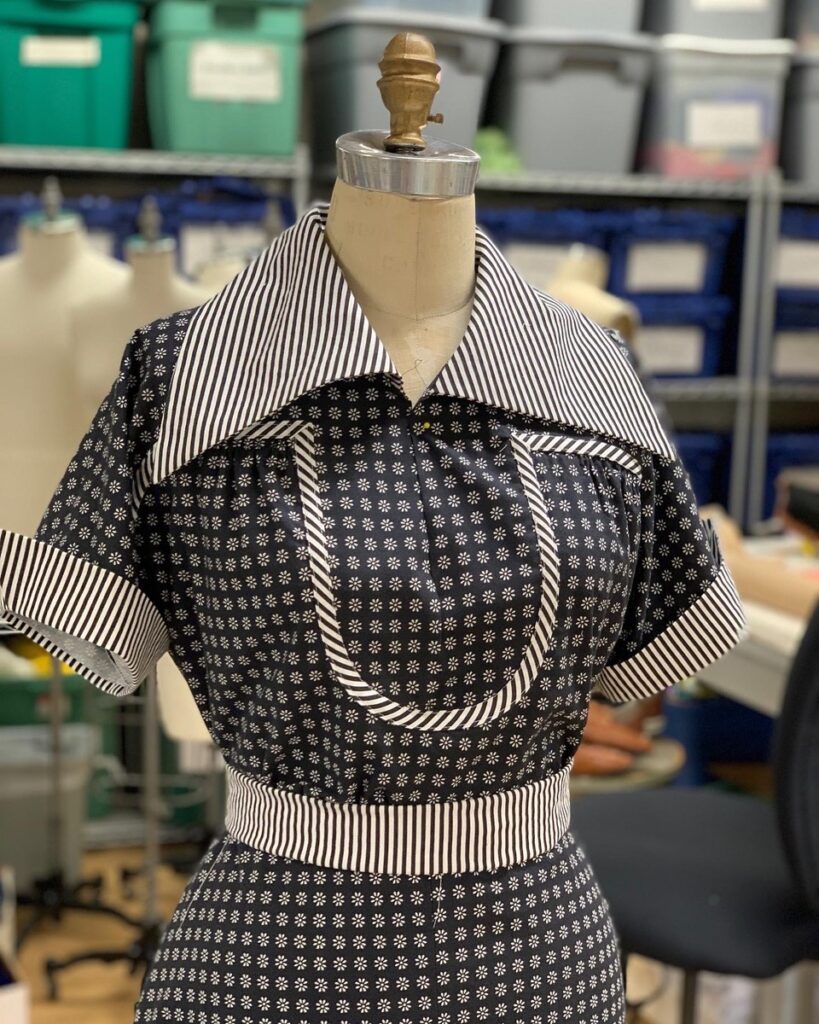
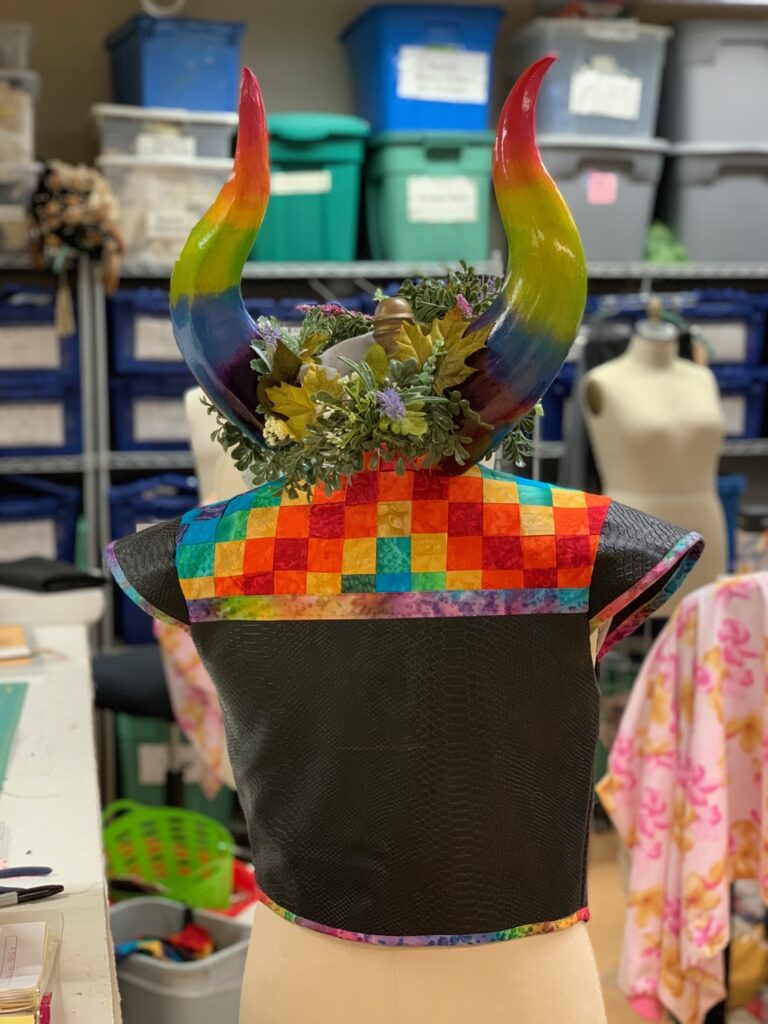
Commitment
Students sign up for available time blocks that work for their schedule. The shop is typically open from 10:00 a.m.-12:00 p.m. and 1:30-5:30 p.m. Monday through Friday with some exceptions due to classes being taught in the shop or meetings. Students sign up for a 2 hour (or more) time block.
Experience
Students from all experience levels are welcome. If you’ve always wanted to learn how to sew OR if you’ve been sewing all your life, there is something here for everyone.
For more information, contact:
How-to-Theatre

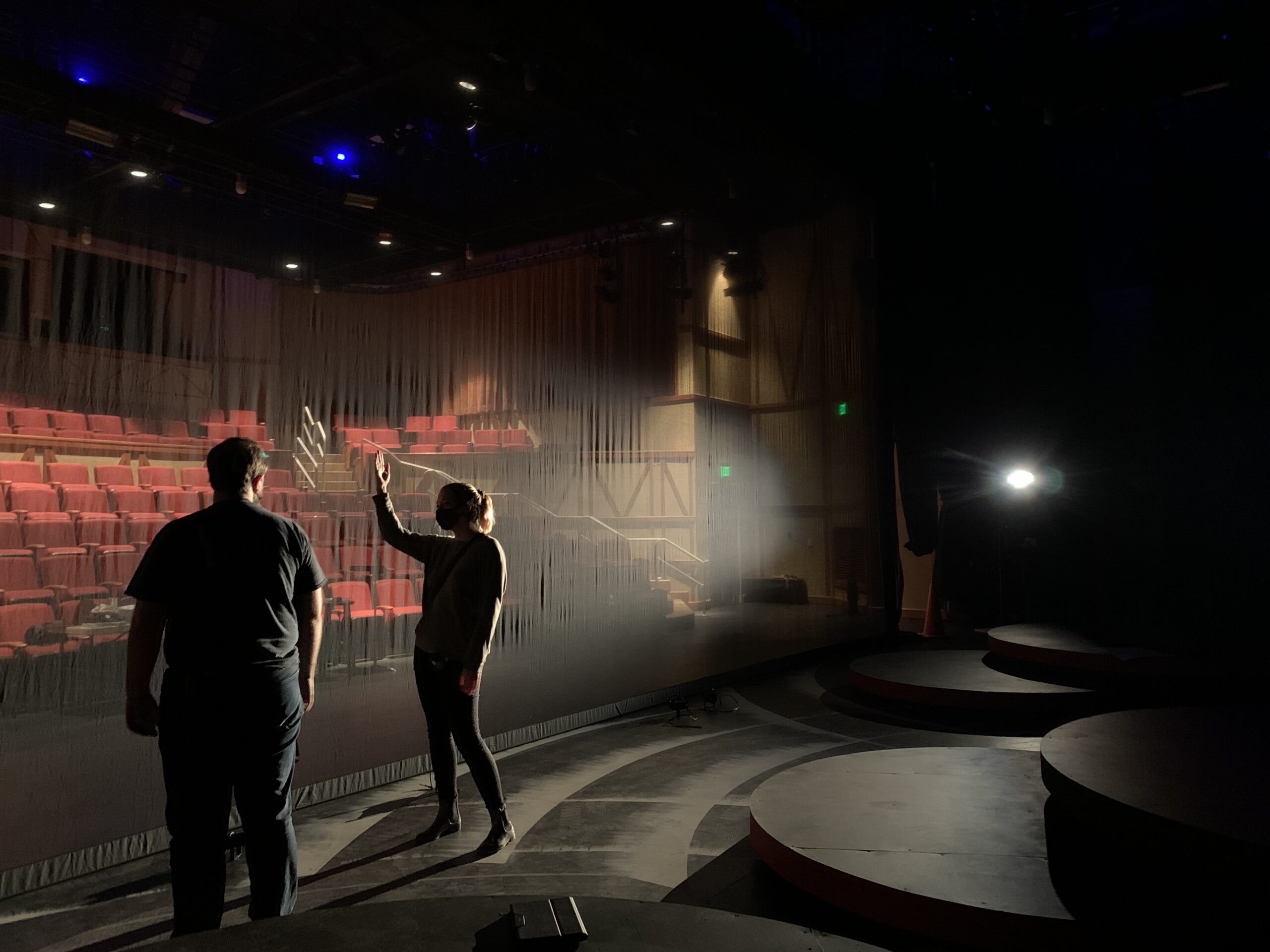
Lighting & Sound
Shaping the world and creating theatrical magic
More than lights and speakers…
Here in the shop, we’re about more than hanging lights and plugging in speakers. Our efforts tie the world of the shows together and create the atmospheric and mood setting magic seen on stage. Most of our work happens directly on stage or in the theatre. We set up lighting and sound systems as well as special effects units for UT shows and special projects.
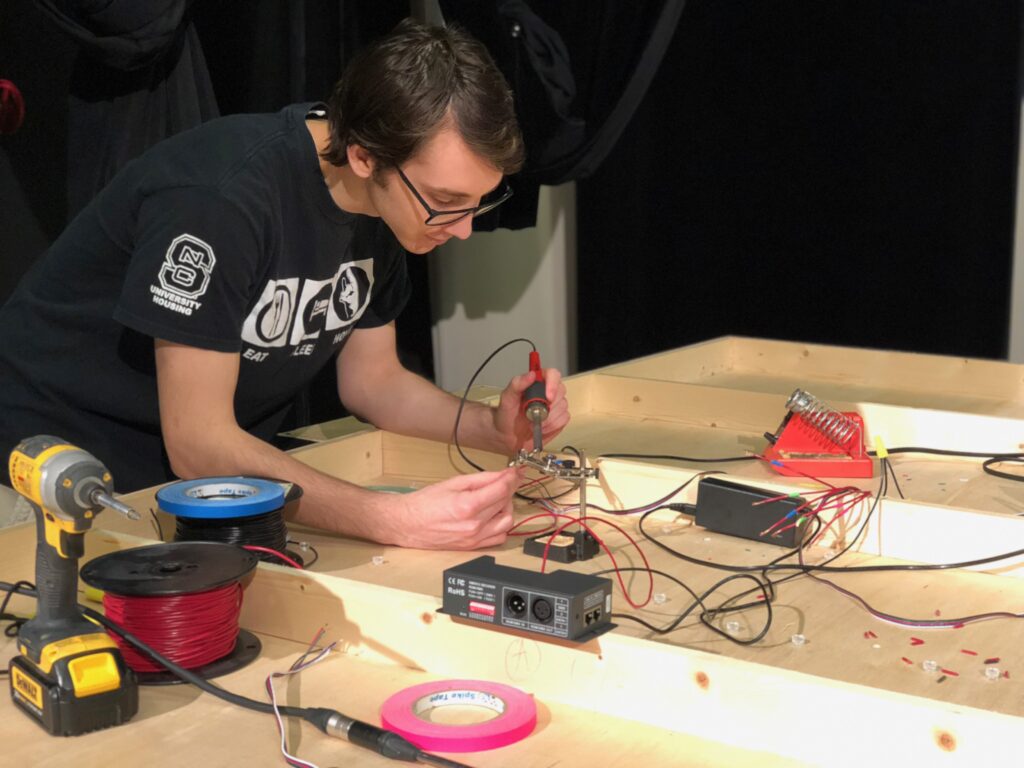
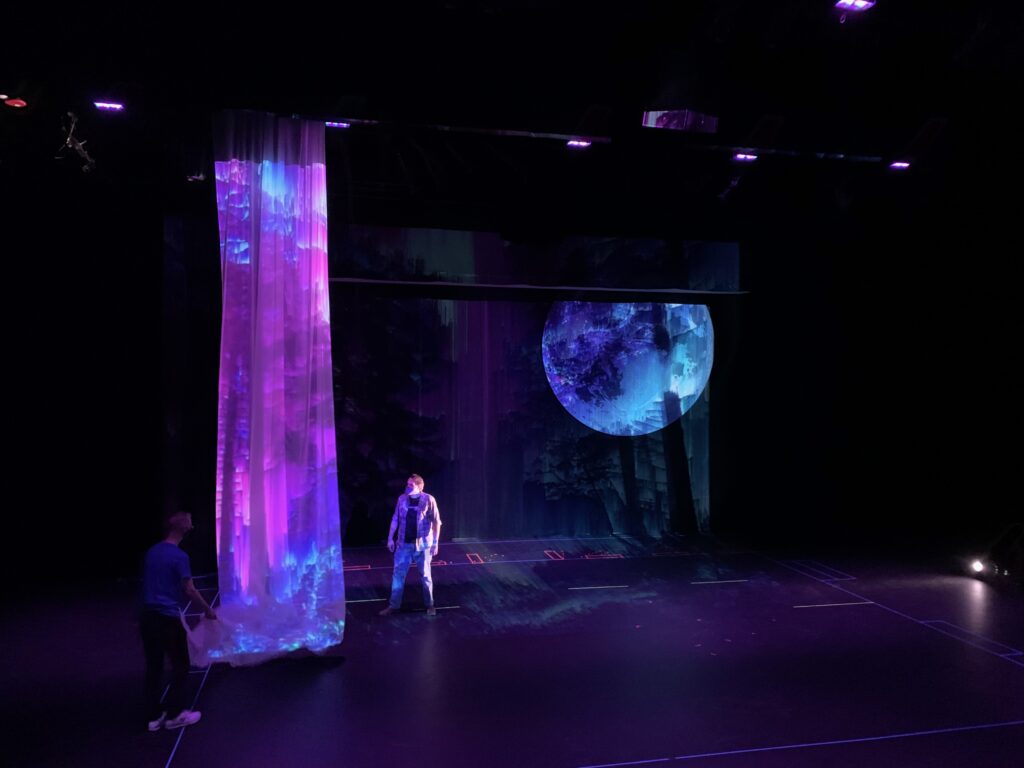
Here are just a few of the ways that working in the shop might tie in with your academic load —
- Power management and load distribution
- Implementation of technical drawings
- Real time adaptation of design elements as necessary
- Photometric properties and the physics of light
- Basic electricity and circuit building
The best part about the experience requirement for the shop is that it doesn’t exist. We’re happy to have folks of all skill levels, with lighting or non-lighting backgrounds.
Commitment
Students sign up for available time blocks that work for their schedule. The shop is typically open from 1:00-4:00 p.m. M,W,Th,F. Students sign up for a 2 hour (or more) time block.
If you’re interested in lighting, sound, or have no idea what either of those are and want to learn more, reach out today.
For more info contact:



